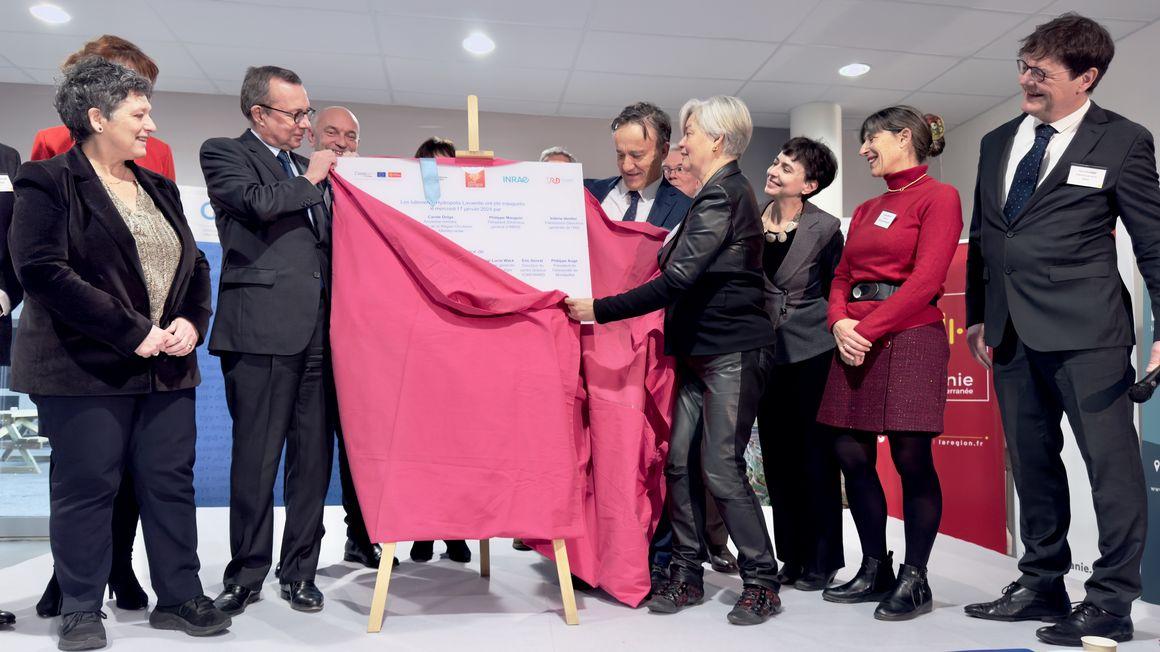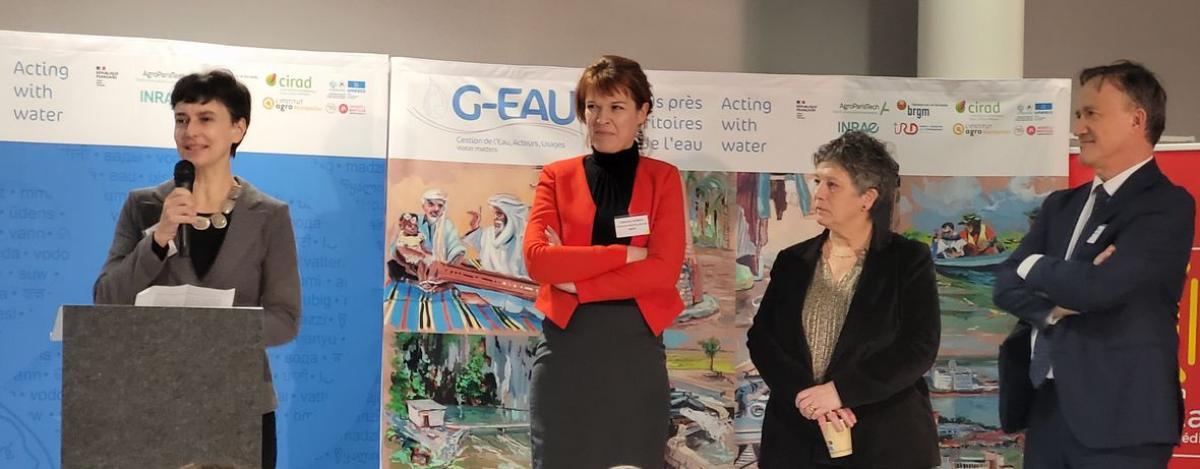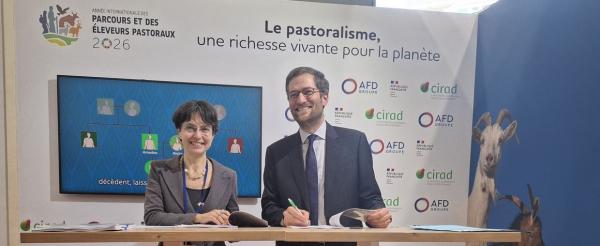Institutional news 23 February 2026
- Home
- Press area
- Press releases
- Inauguration of Hydropolis water research site
Inauguration of the Hydropolis La Valette buildings

The participants in the inauguration of Hydropolis unveil the plaque of the new buildings © C. Cornu, CIRAD
Hydropolis is an ambitious project aimed at bringing together all the different water research capacities in Montpellier. The goal is to foster cooperation between research teams and public and private partners, at all levels: innovation, consulting and training. It is a key component of the ICIREWARD International Centre, the first UNESCO centre for research and training on continental water in France, and one of the most important at the international level.
This project is fully in line with the French state’s planning of the ecological transition. Indeed, the Conference of the Parties in November 2023 – which addressed the issue of water scarcity in its work –, the actions initiated in the context of the Plan Eau (Water Plan) launched in March 2023, and investments in research, innovation and training across the whole water management value chain reflect the state’s involvement in adapting water management policy to the challenges of climate change.
Hydropolis has also benefited from strong support from the Occitanie Region for the two operations – Pharmacy Campus and La Valette – conducted in the context of the State-Region Project Contract 2015-2020 (CPER): as the main financer, it mobilised more than 12 million euros (CPER and ERDF - European Regional Development Fund) of a total cost of 13 million euros. Water is a strategic regional issue for the Occitanie Region, which developed a dedicated plan in July last year, setting a roadmap to 2030 aimed at tackling the climate emergency and strengthening the Region’s commitment to sustainable water management.
The project at the La Valette site is an operation to restructure existing buildings in order to accommodate the teams from the G-Eau joint research unit. It is part of the Hydropolis Montpellier project, aimed at bringing together water research capacities across two sites:
• The Pharmacy Campus site, focusing on the characterisation of water resources, contaminants and their impacts on health
• The La Valette site, specializing in interdisciplinary and participatory research on integrated and adaptive water management.
In total, a set of buildings providing more than 5 000 m2 of floor space with capacity to host more than 300 people.
The goal of the La Valette site restructuring is to develop collaborative research with companies, public partners and associations.
The focal areas are:
- Technologies and tools for irrigation water control
- Adaptation to risks (droughts, floods)
- The governance of water and territories, and support for water stakeholders.
In addition to providing teams with buildings that meet environmental and energy standards, the future buildings will facilitate:
- The development of major technological projects in partnership with companies working closely with researchers
- The establishment of new social experiments to validate methodological developments in the social sphere
- The consolidation of activities to design and assess tools for the implementation of innovative public policies
- Support for multi-disciplinary training for students in the field of water in France and abroad.
The Hydropolis La Valette and Hydropolis Pharmacy Campus structures will also benefit the dynamics of the Pôle Eau / Aquavalley, the Défis Clés financed by the Occitanie Region (Water Occitanie and Vinid’Occ) and the MedVallée initiative led by the Metropolitan Council, the Region and the state.
Funding for the Hydropolis project
Hydropolis La Valette: Total cost: 4.4 million euros
Region CPER (3.14 million euros)
Region ERDF (0.73 million euros)
State: INRAE (0.29 million euros) - IRD (0.23 million euros)
Hydropolis Pharmacy Campus: Total cost: 8.61 million euros
Region CPER (7.43 million euros)
Region ERDF (1.18 million euros).
G-EAU is at the core of research dynamics on water territories in Africa, Brazil and the Mediterranean, in particular through the dP SIRMA in North Africa and the dP GOVINN in Southern Africa, with both North-South and South-South cooperation, especially between North Africa and Brazil. The projects conducted in Tunisia, Brazil and New Caledonia are examples of support for the citizen development of territorial water policies, for the monitoring and prioritisation of investments in water. An original approach combining support for public policy development and the analysis of controversies surrounding water.




























